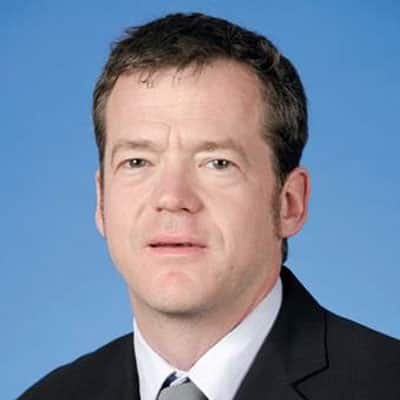Customer Logins
Obtain the data you need to make the most informed decisions by accessing our extensive portfolio of information, analytics, and expertise. Sign in to the product or service center of your choice.
Customer Logins
BLOG
Mar 20, 2019
Gambian cabinet instability
Gambian President Adama Barrow sacked Vice-President Ousainou Darboe and two senior ministers on 15 March without explanation. Darboe, Minister of Commerce Amadou Sanneh, and Minister of Agriculture Lamin Jobe were all members of the United Democratic Party (UDP), which now has no ministers in government despite holding an absolute majority in the National Assembly following elections in April 2017.
All three sacked ministers had been jailed on spurious grounds by previous president Yahya Jammeh (1996-2017). However, they were pardoned by Barrow when he took over as president following regional military intervention to remove the dictatorial Jammeh in January 2017 after his election defeat by Barrow. Darboe, runner-up in the previous three presidential elections, was initially made foreign minister and then vice-president in June 2018 before his relations with Barrow started to deteriorate.
Significance
The sackings mark a definitive split between Barrow and his former mentor Darboe, as well as with the UDP, to which Barrow formerly belonged before he was chosen in late 2016 as the candidate of the united opposition. The deal agreed then was that Barrow would serve three years before stepping aside at fresh elections, with Darboe viewed even then as his likely successor.
However, in recent months, it has become clear that Barrow has no intention of honoring the agreement, a point underlined by his formation of the President Barrow Youth Movement for National Development. UDP official statements have denounced this move as the first step in forming a new political party.
A key indicator of increasing government instability and civil war risk will be a Supreme Court ruling against the legality of Barrow's revocation in late February of UDP member of parliament Ya Kumba Jaiteh's parliamentary status, which her party says has no legal basis. A related indicator would be the extent of supportive demonstrations by Barrow's youth movement, and any associated violence. However, a key factor mitigating the risk of escalation is the continued presence of the Senegal-dominated ECOMIG regional peacekeeping force in Gambia, which has been deployed in the country since Jammeh was ousted.
{"items" : [
{"name":"share","enabled":true,"desc":"<strong>Share</strong>","mobdesc":"Share","options":[ {"name":"facebook","url":"https://www.facebook.com/sharer.php?u=http%3a%2f%2fprod.azure.ihsmarkit.com%2fmarketintelligence%2fen%2fmi%2fresearch-analysis%2fgambian-cabinet-instability.html","enabled":true},{"name":"twitter","url":"https://twitter.com/intent/tweet?url=http%3a%2f%2fprod.azure.ihsmarkit.com%2fmarketintelligence%2fen%2fmi%2fresearch-analysis%2fgambian-cabinet-instability.html&text=Gambian+cabinet+instability+%7c+S%26P+Global+","enabled":true},{"name":"linkedin","url":"https://www.linkedin.com/sharing/share-offsite/?url=http%3a%2f%2fprod.azure.ihsmarkit.com%2fmarketintelligence%2fen%2fmi%2fresearch-analysis%2fgambian-cabinet-instability.html","enabled":true},{"name":"email","url":"?subject=Gambian cabinet instability | S&P Global &body=http%3a%2f%2fprod.azure.ihsmarkit.com%2fmarketintelligence%2fen%2fmi%2fresearch-analysis%2fgambian-cabinet-instability.html","enabled":true},{"name":"whatsapp","url":"https://api.whatsapp.com/send?text=Gambian+cabinet+instability+%7c+S%26P+Global+ http%3a%2f%2fprod.azure.ihsmarkit.com%2fmarketintelligence%2fen%2fmi%2fresearch-analysis%2fgambian-cabinet-instability.html","enabled":true}]}, {"name":"rtt","enabled":true,"mobdesc":"Top"}
]}




